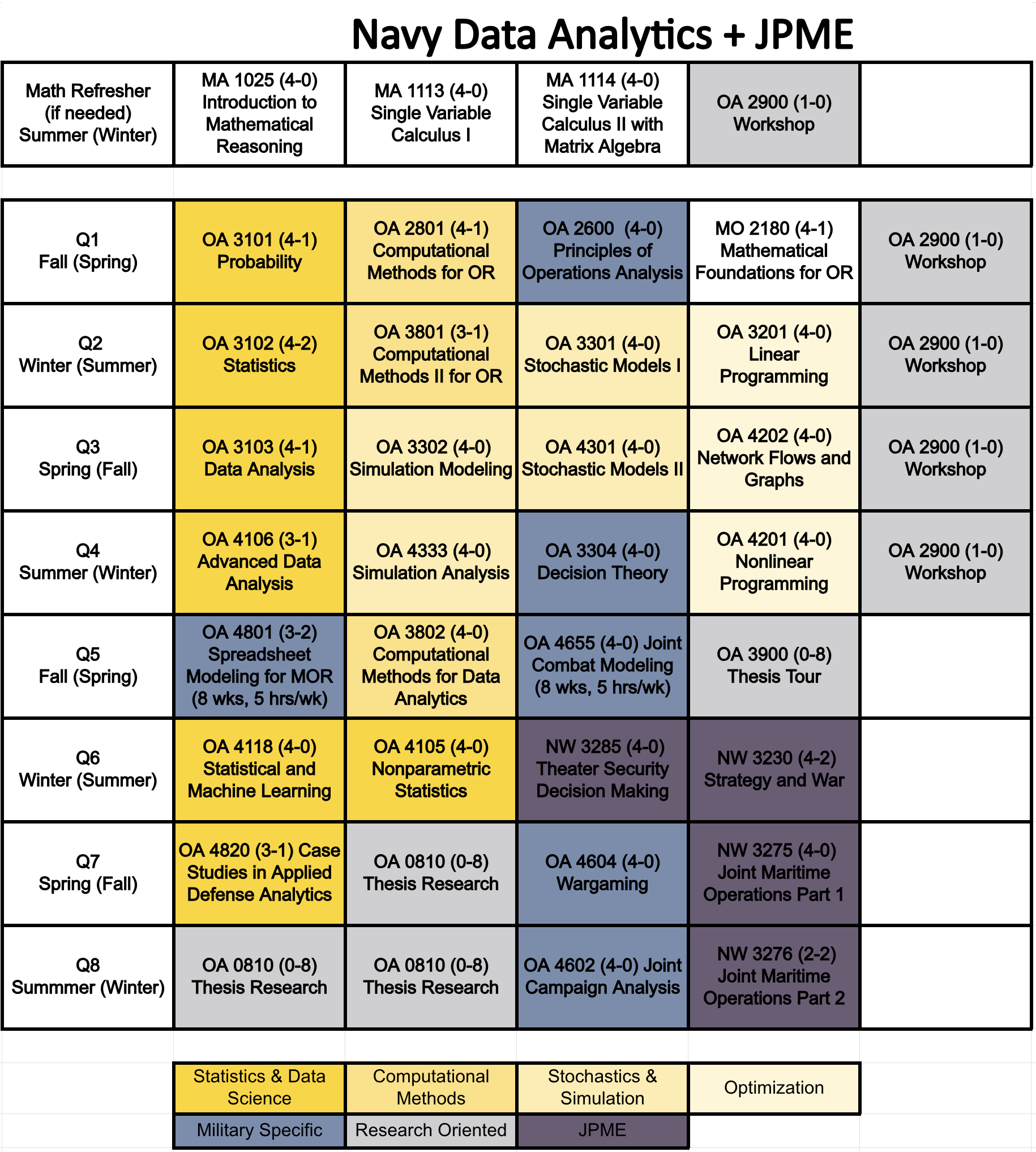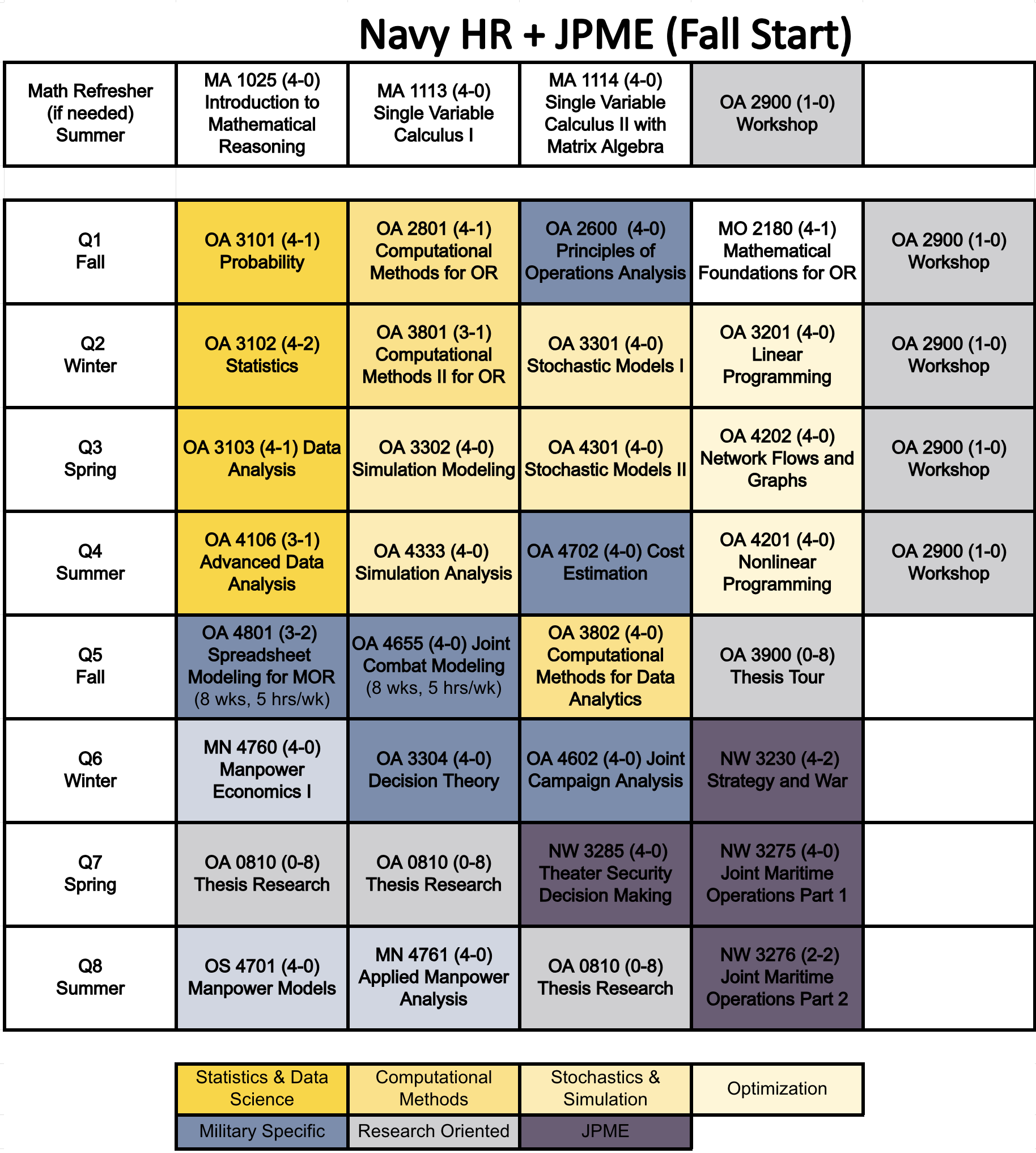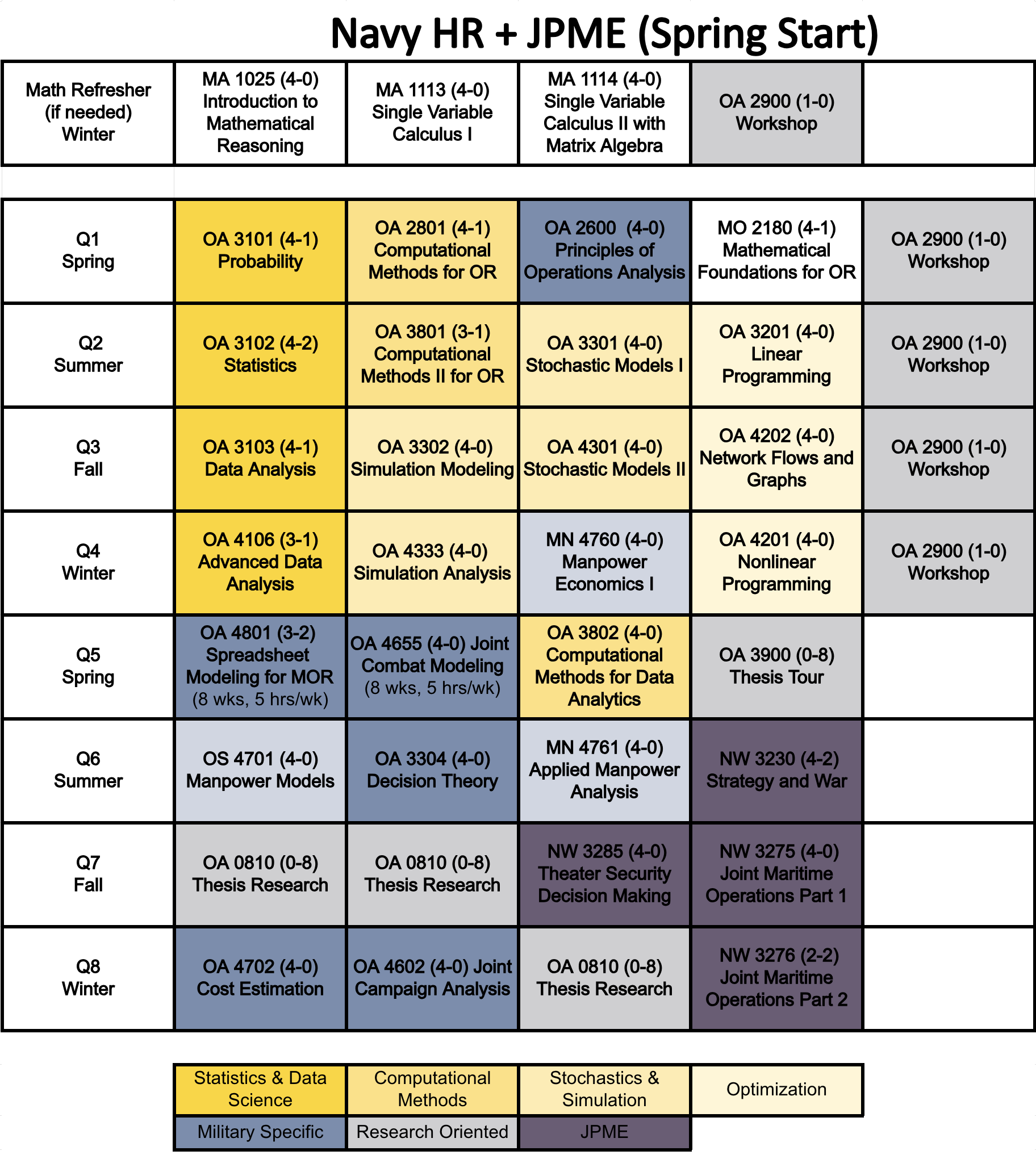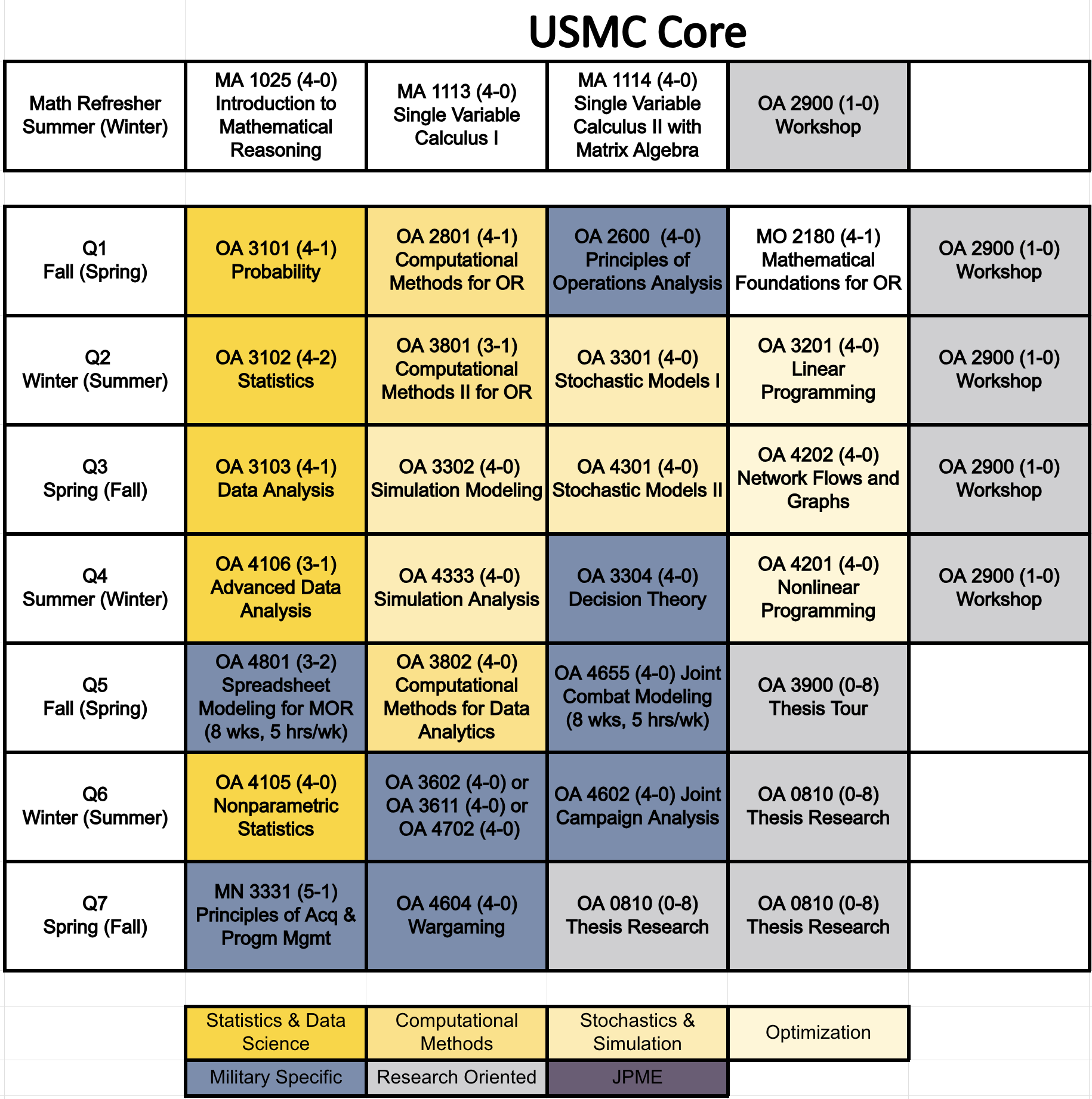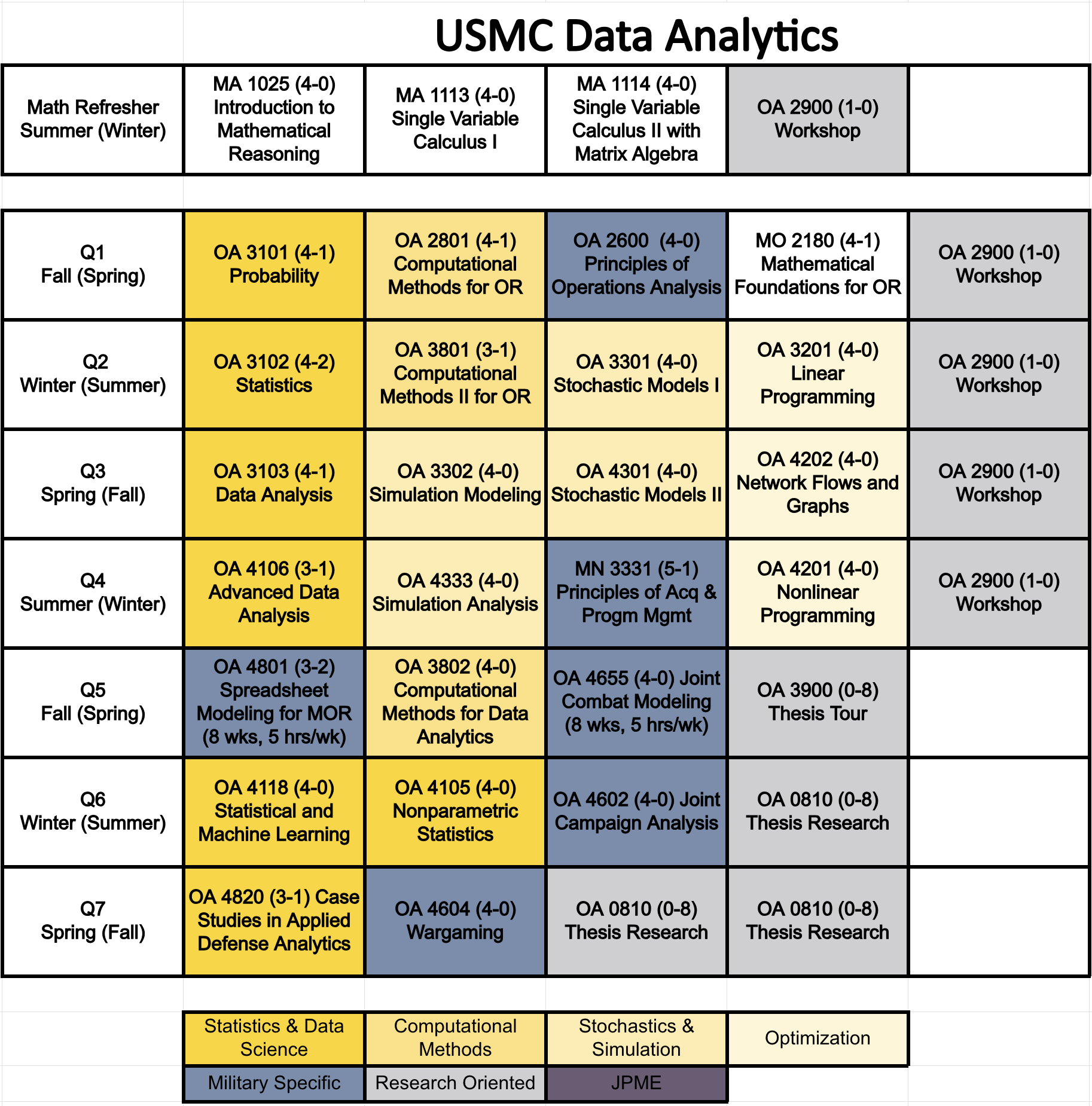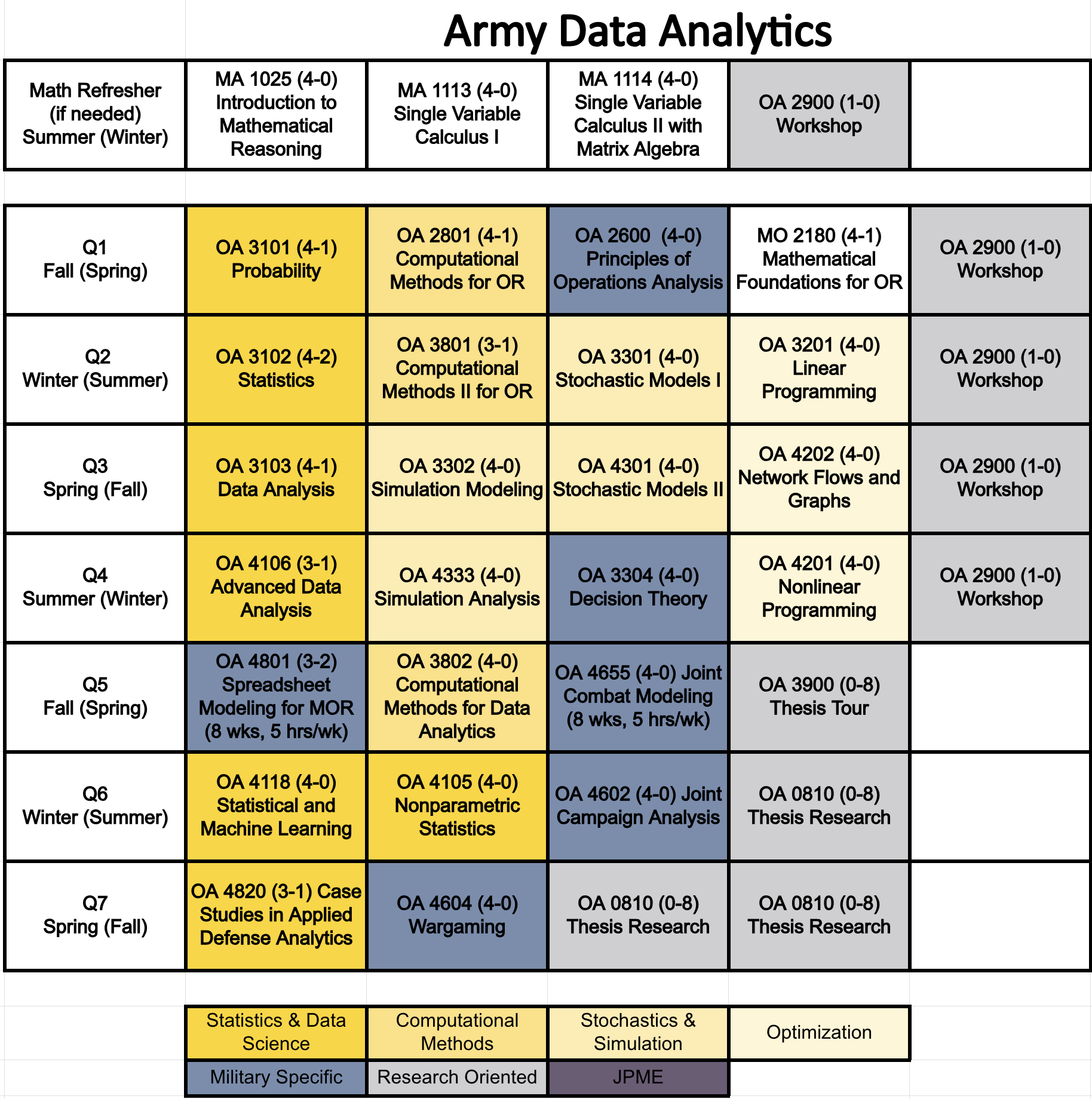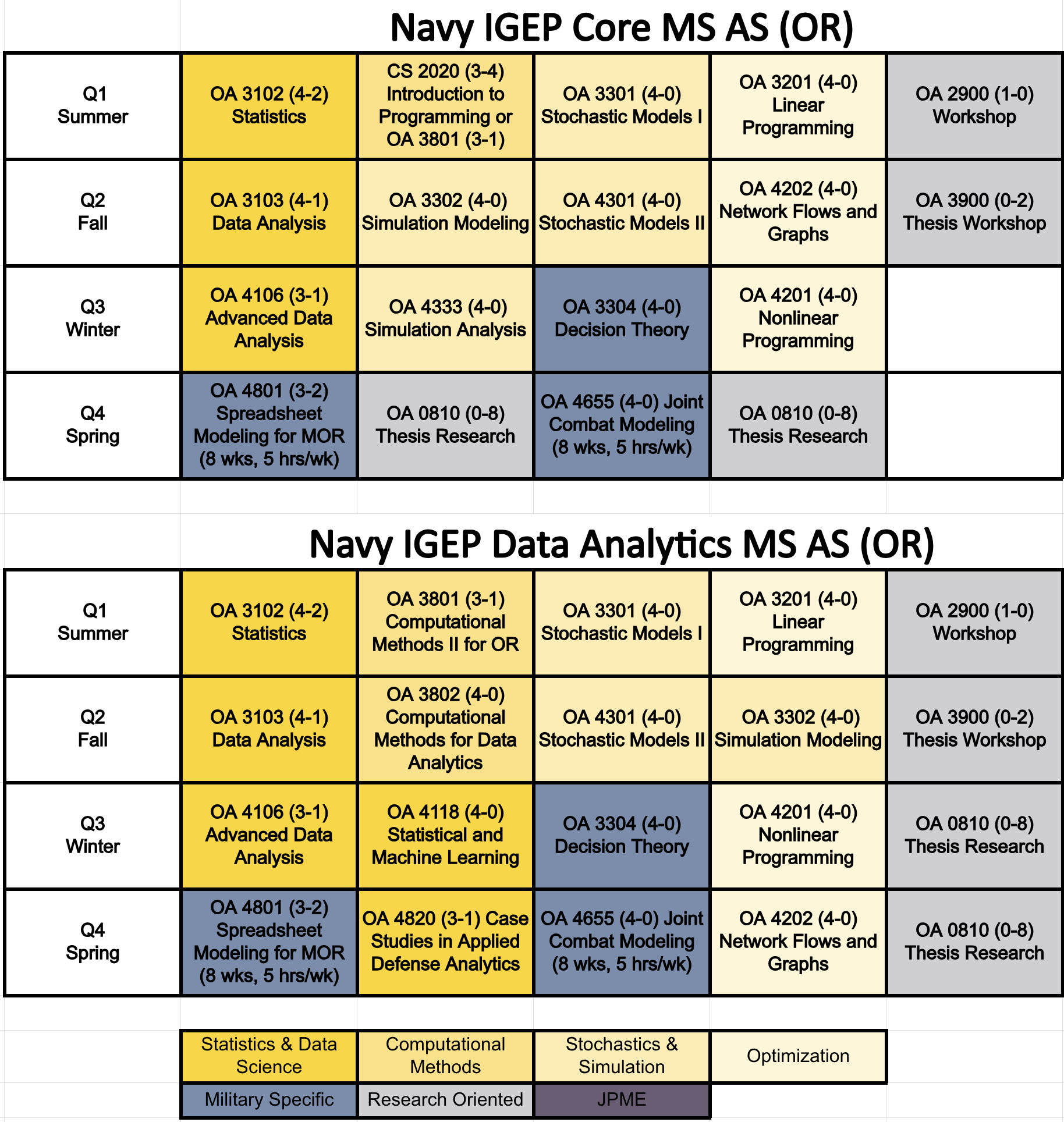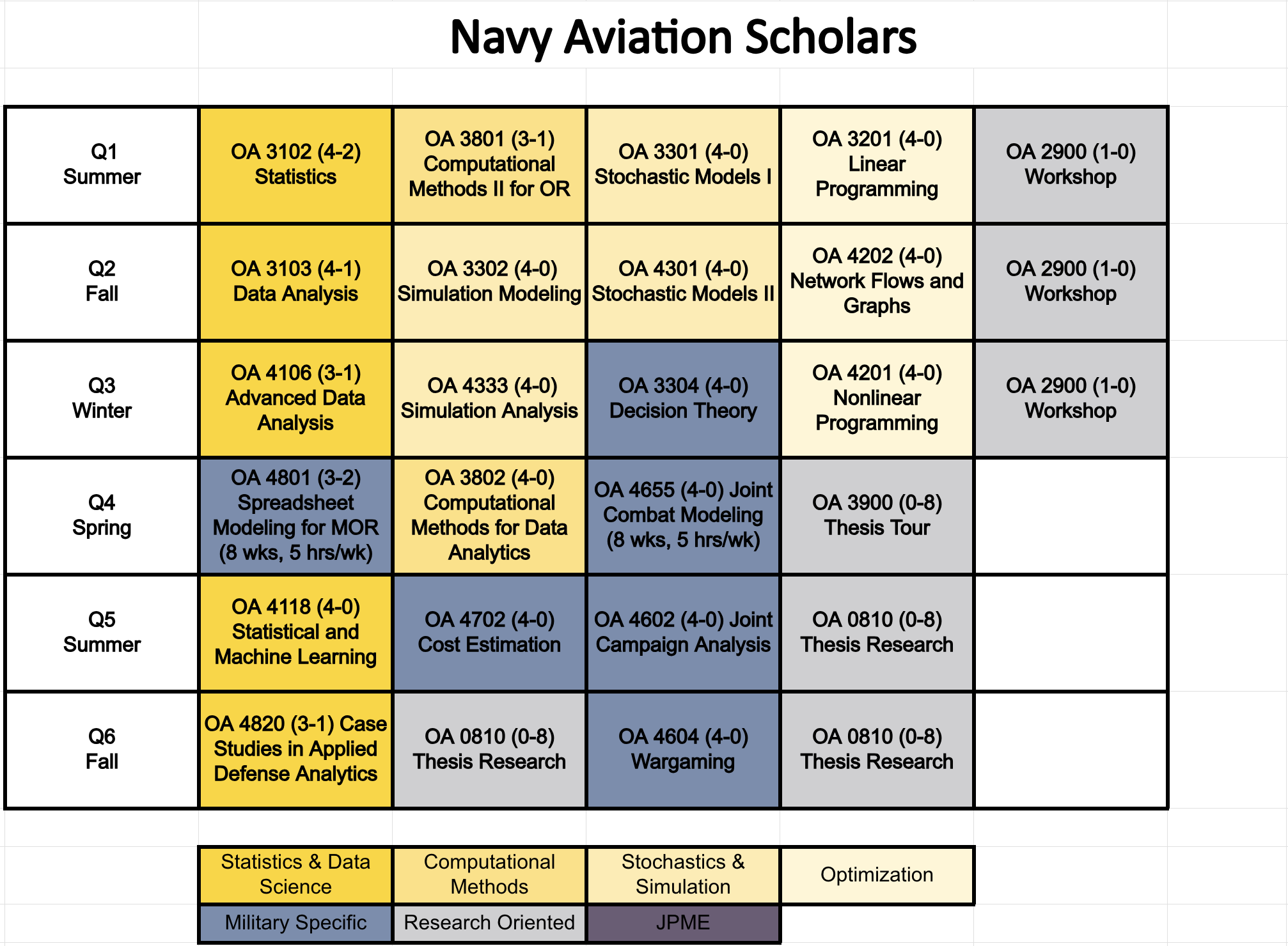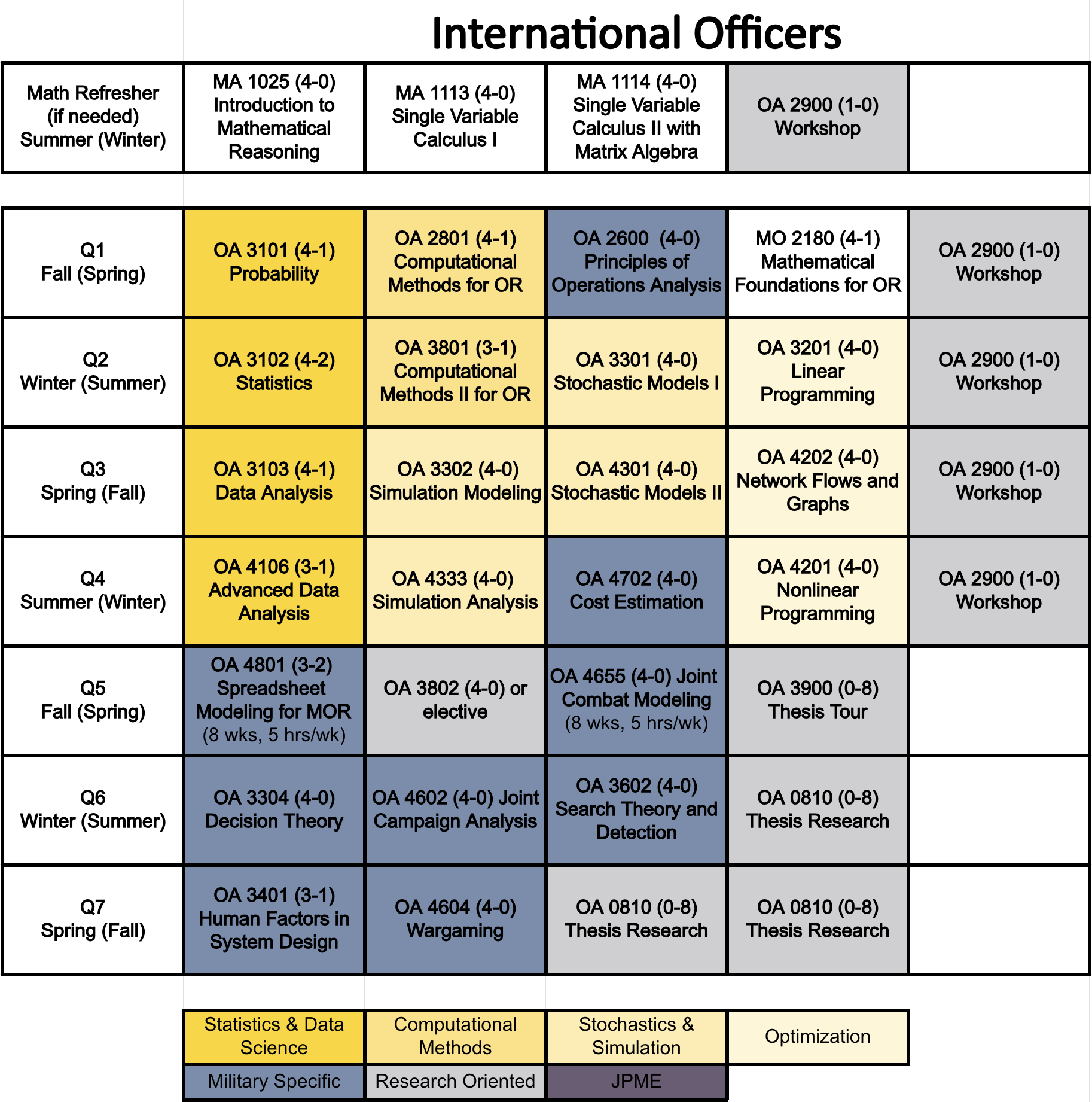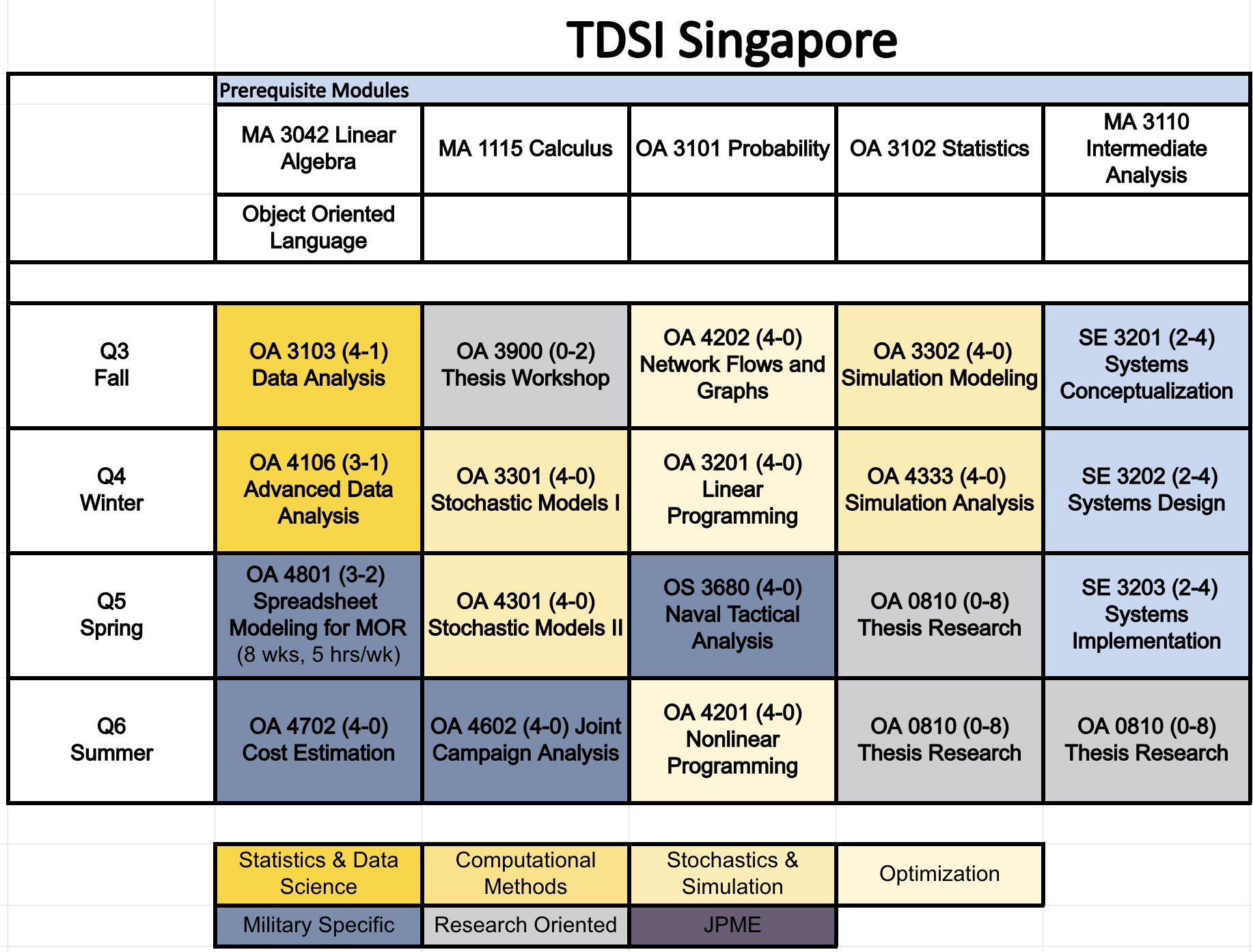Operations Analysis (360) - Operations Research
Operations Analysis (OA) - Curriculum 360
The Operations Analysis (OA) curriculum was founded by the Navy in 1951, in order to retain, develop, and promulgate the methods of Operations Research (OR) that were used so successfully in World War II. OR is the science of helping people and organizations make better decisions. More formally, it is the development and application of mathematical models, statistical analyses, simulations, analytical reasoning, and common sense to the understanding and improvement of real-world operations. Improvement can be measured by the minimization of cost, maximization of efficiency, or optimization of other relevant measures of effectiveness. Practitioners are called on to advise military and civilian decision makers on the allocation of scarce resources, the selection of new equipment and processes, and the optimal deployment of given resources to achieve required missions.
Mathematics, probability, statistics, and optimization supply the theoretical background for analyzing alternative choices in tactical and strategic warfare, and in planning, budgeting, and procurement of systems and forces. The student learns computational methods and develops skills to identify relevant information, formulate decision criteria, and select alternatives. This education enhances performance in all duties throughout a military career including operational billets, technical management assignments, and policy-making positions.
Completion of this curriculum earns a Masters of Science in Operations Research and qualifies an officer as an Operations Analysis Subspecialist with a subspecialty code of 3211P. The curriculum sponsor is OPNAV N81, Assessment Division.
For more information, including official requirements for entry and graduation, see the NPS Academic Catalog.
Course Matrices
Everything we do in our curricula is focused on supporting decision-making with data, models, and analysis
The standard "core matrix" for Navy officers focuses on traditional warfare analysis.
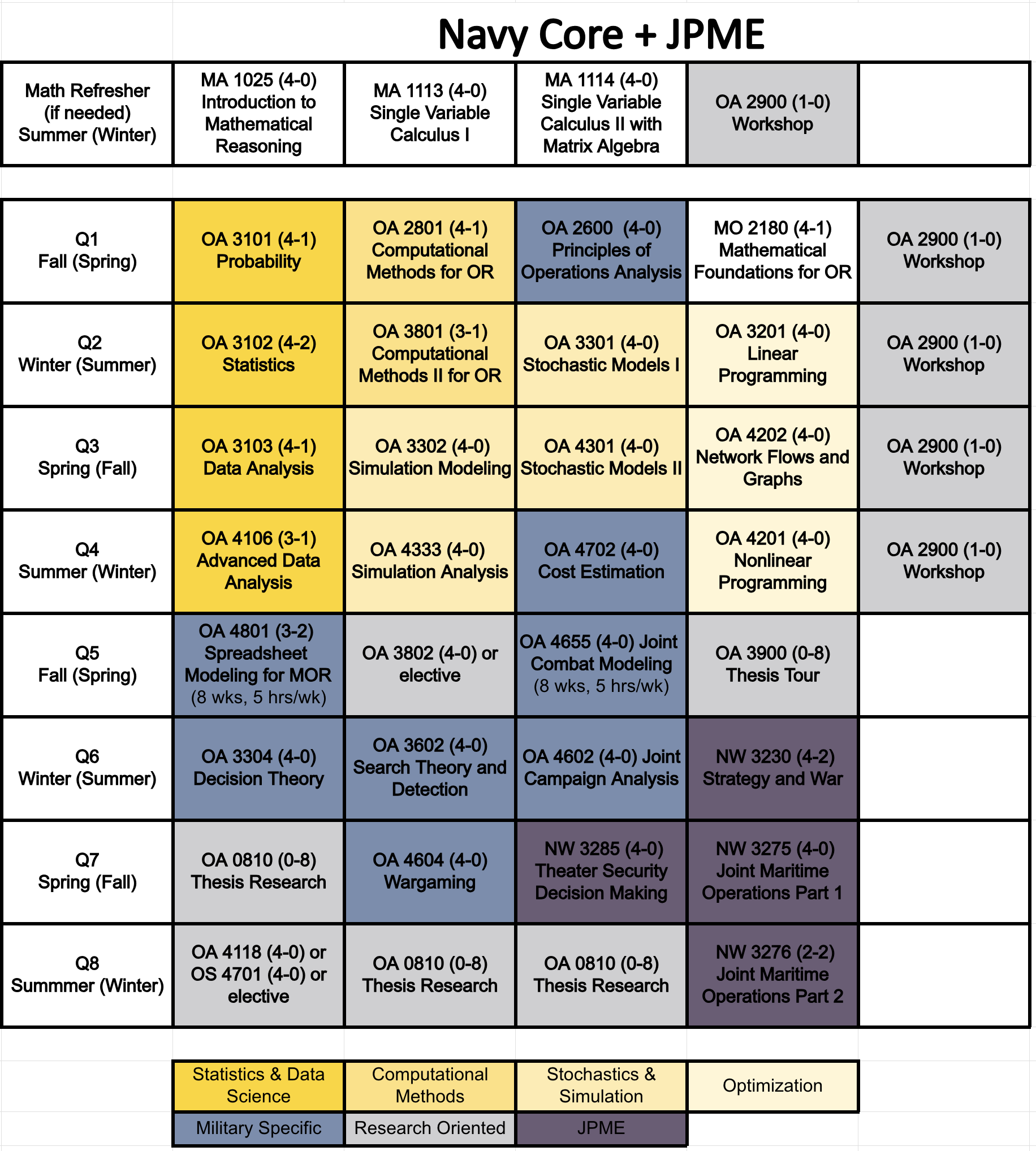
Navy officers who are directed to focus on data science go deeper in statistics, computation, and machine learning in lieu of traditional warfare analysis.
